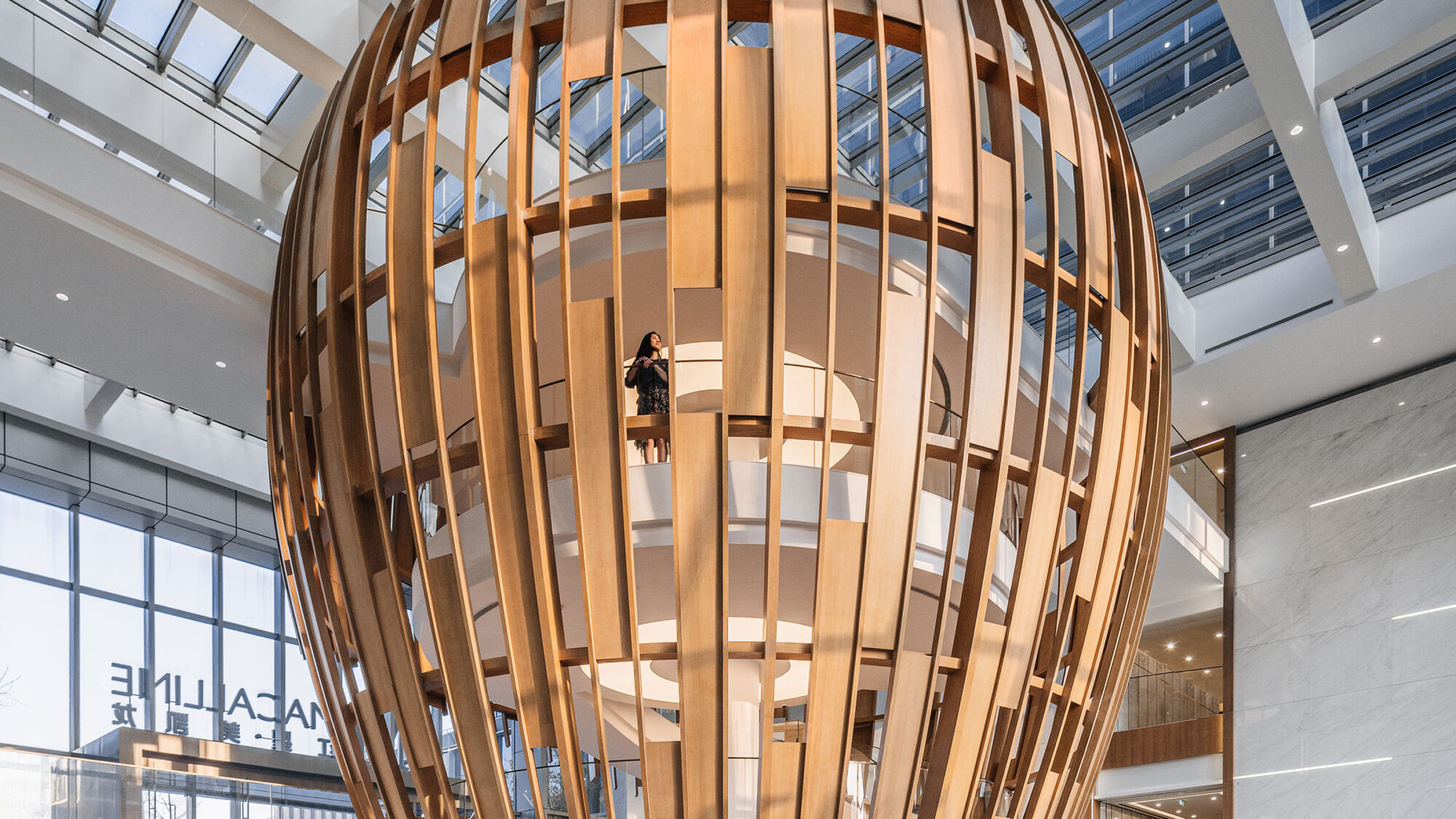

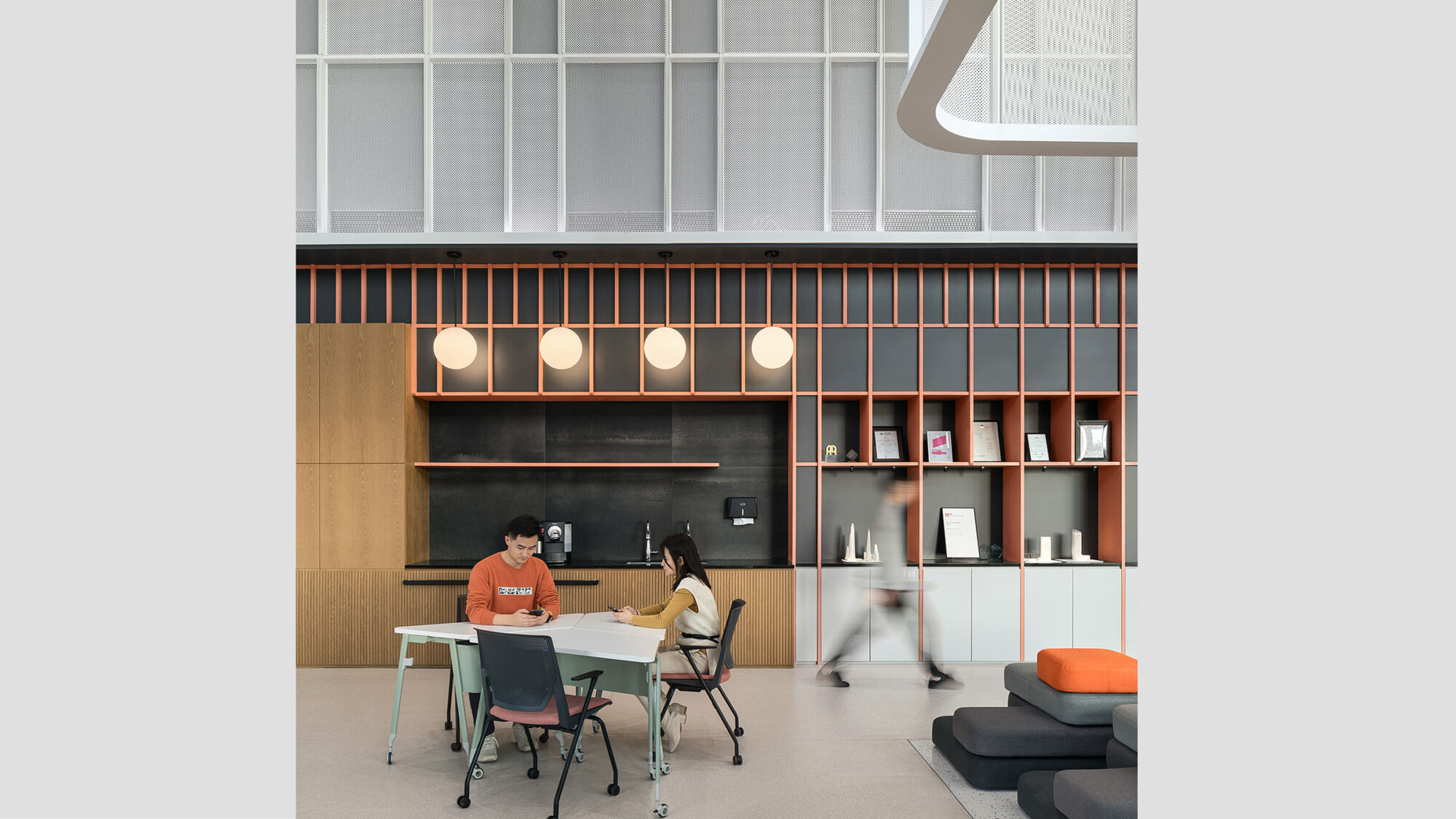


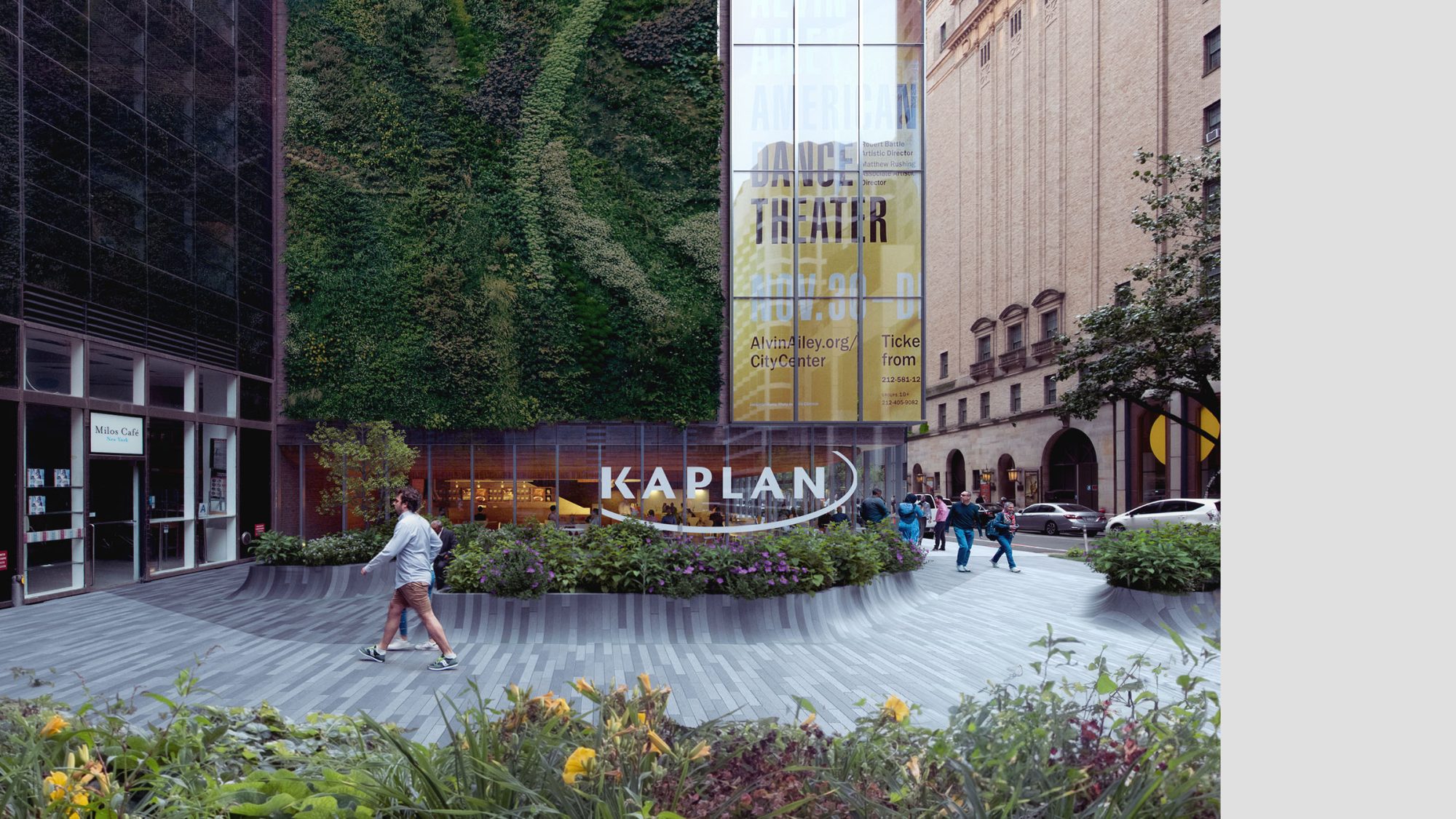
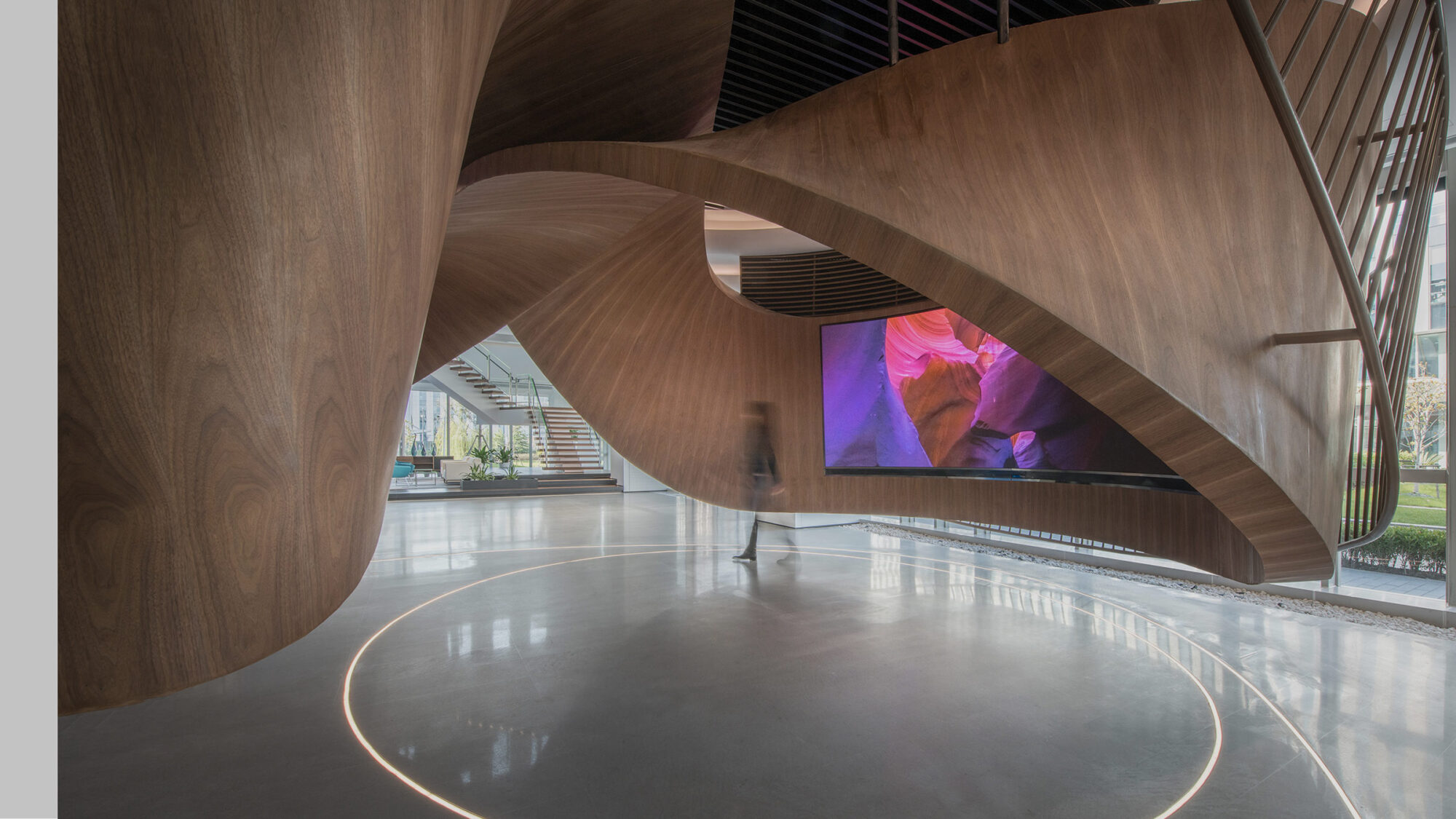
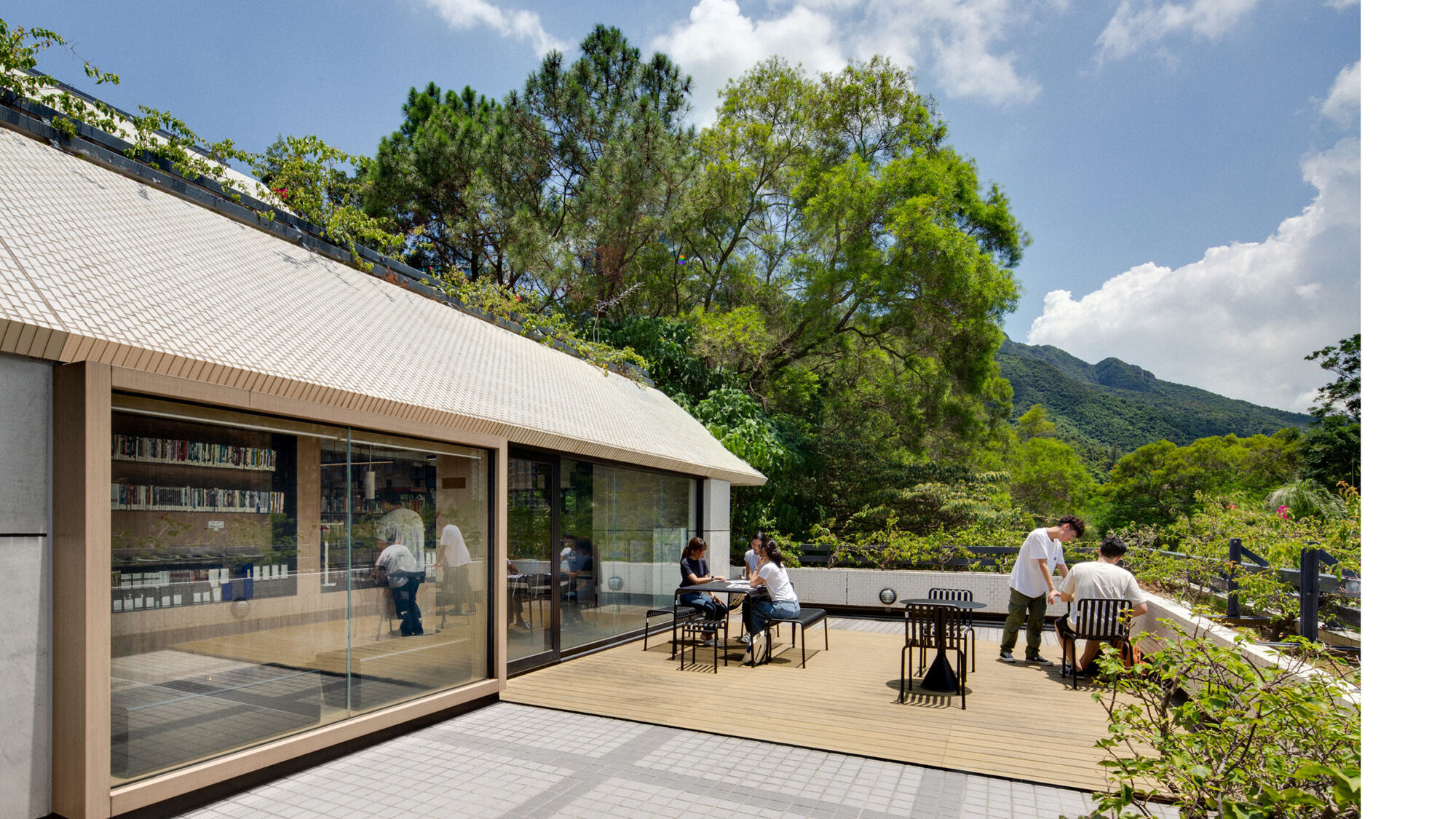
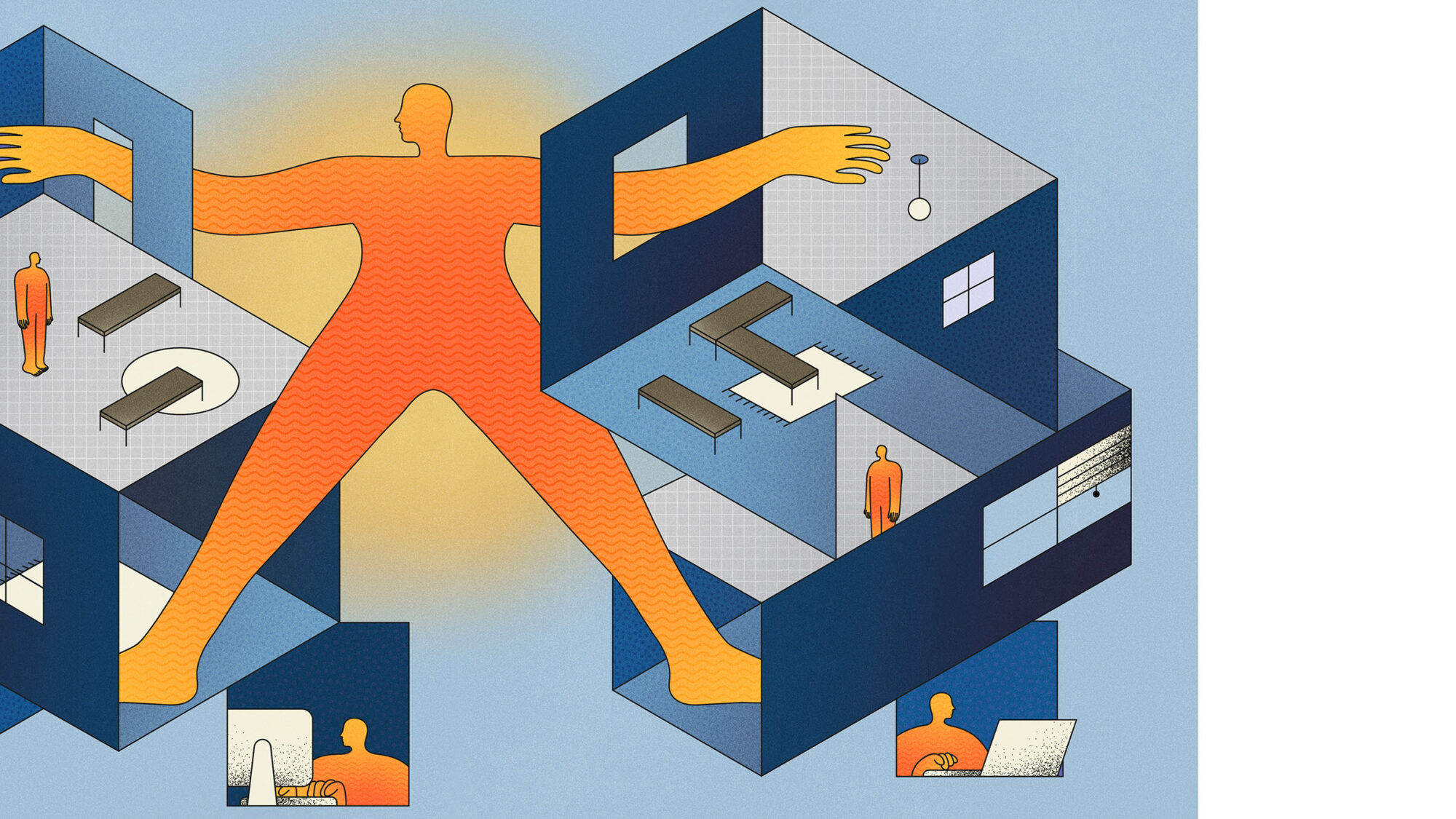

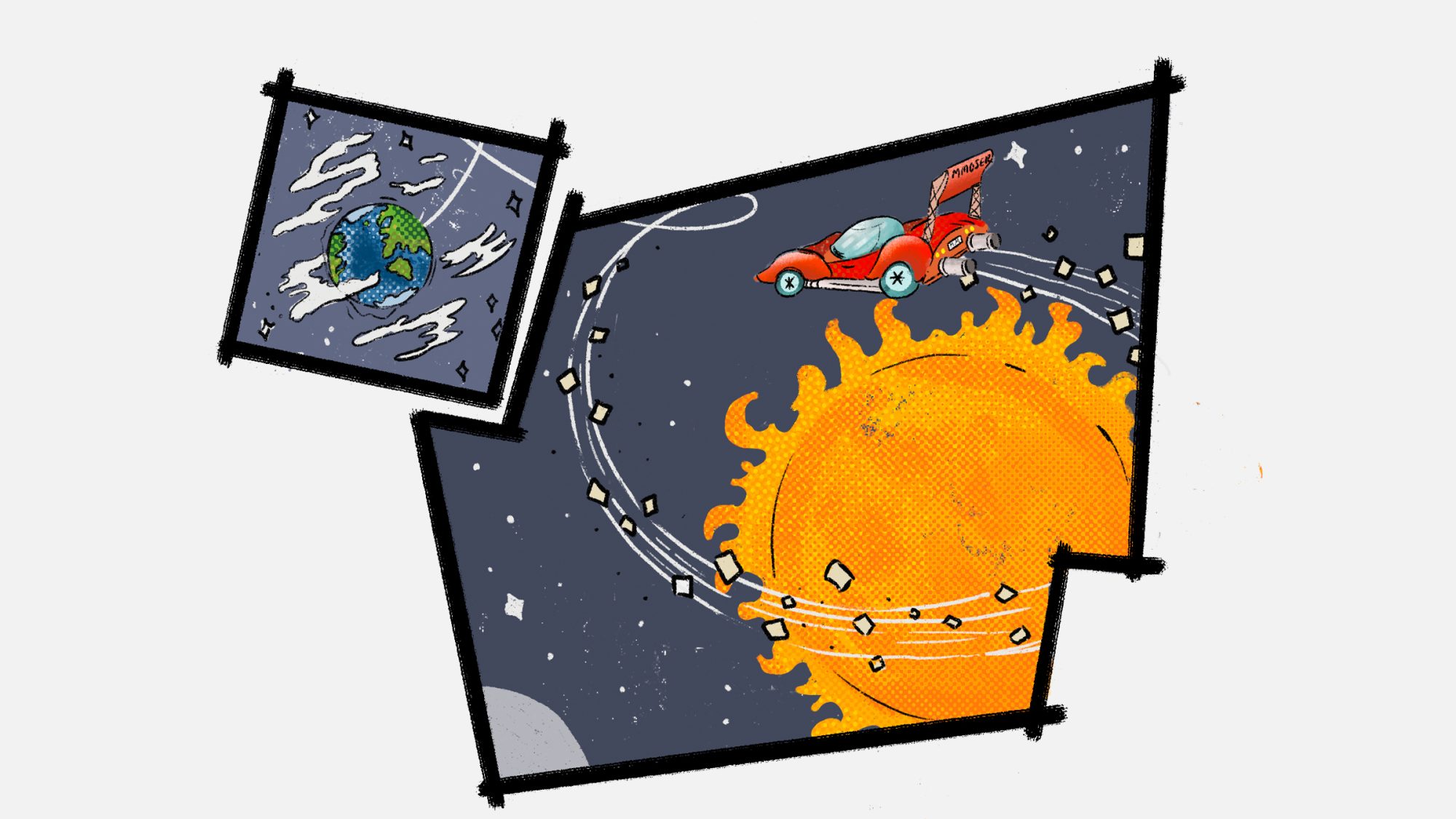
What if we told you that the waste from discarded carpet tiles each year produces enough carbon emissions to drive to the Sun and back?
Tackling this challenge is within our industry’s reach. We can take steps today to make an impact.
Every year in the UK, ~8 million square metres (sq m)* of carpet tiles are sent to landfill. That’s 72,000 metric tonnes of wasted embodied carbon. In context, this is the equivalent to:
In today’s fit-out cycle, most carpet tiles are replaced on average after just 5 years, despite having a lifespan of up to 15 years. This means more than half of their potential use is wasted. As they decompose very slowly in landfill, this practice results in long-term waste accumulation.
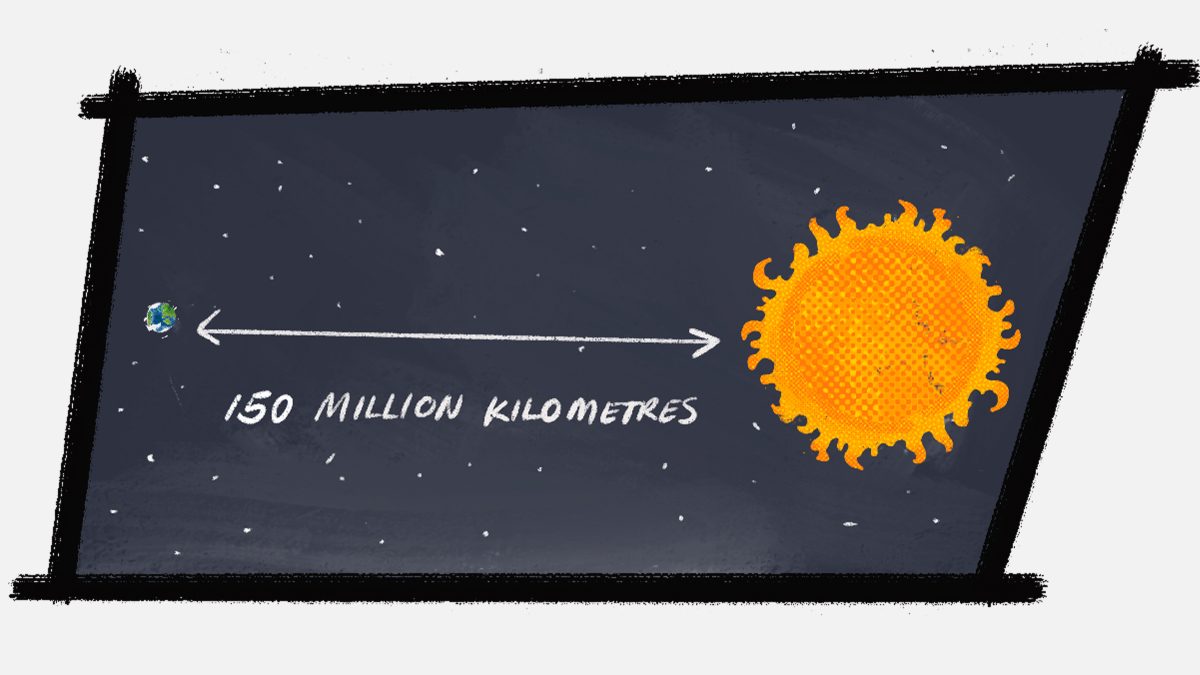
So why aren’t we doing more to tackle this issue? The surprising answer might lie in a misconception about costs. In reality, the difference between sending carpet tiles to landfill and reusing them is just 0.76% – only a few pounds for three pallets (based on 125 sq m per pallet).
Our London studio is partnering with Uplyfted to advance our sustainability goals and tackle this issue head-on. The company specialises in taking used carpet tiles from commercial projects, cleaning and sorting them, and ultimately supplying the renewed products to social housing.
These carpet tiles can begin another life by enhancing warmth and comfort, lowering energy bills, reducing sound transmission and increasing sound absorption for residents.
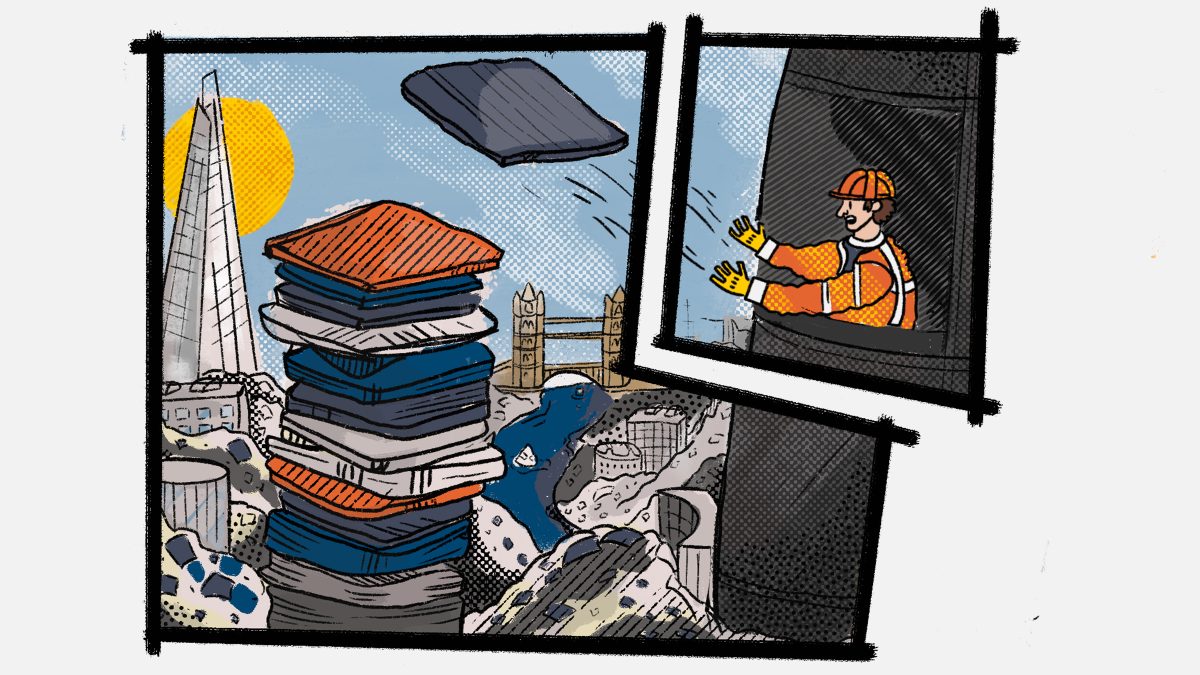
We do this by intercepting carpet waste and diverting it from landfill to a more sustainable path. Let’s break down the process for a 2,000 sq m example project.
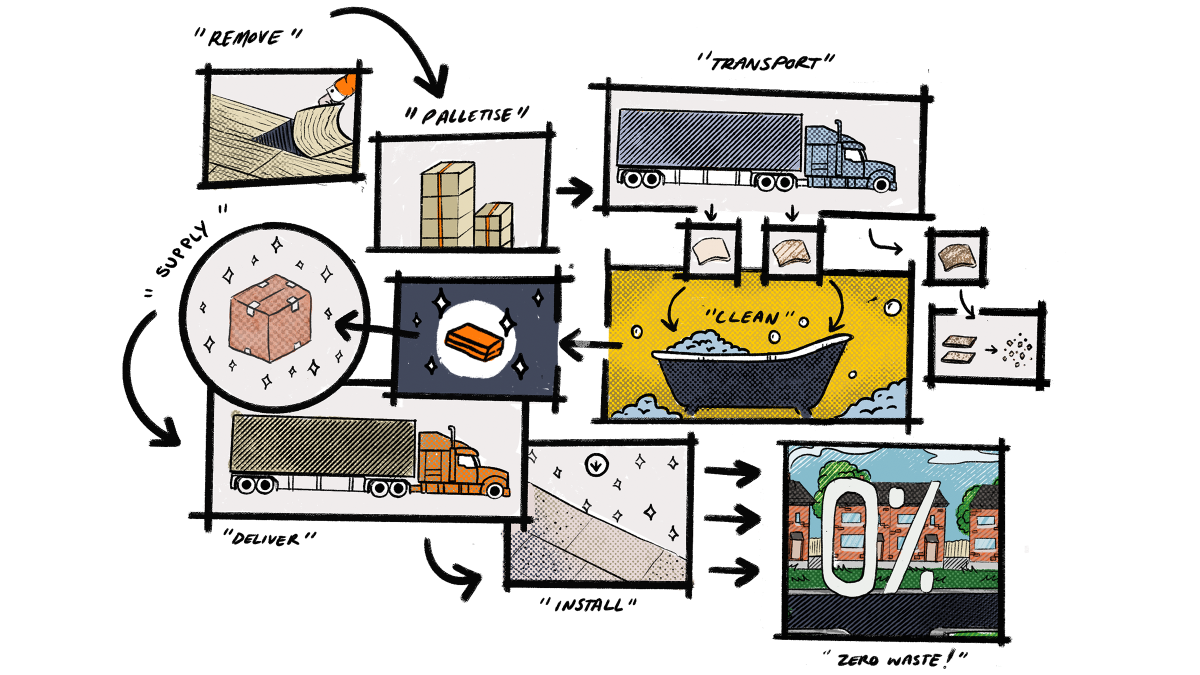
The commercial fit-out firm needs to:
Then, Uplyfted takes over to:
Based on a carbon assessment by Liverpool John Moores University, the carbon cost of this second life is less than 1 kg of CO2 per sq m, compared to 9 kg per sq m for new flooring.
Mastercard, the global payments technology company, was one of our first clients to participate in this initiative.
Our site team sent 1,600 sq m of carpet tiles to Uplyfted as part of the office refurbishment. These tiles will now provide flooring for between 7 and 11 social housing properties across the UK.
Mastercard saved 14.4 metric tonnes of embodied CO2 emissions by reusing the carpet tiles rather than sending them to landfill.
Importantly, the process did not delay the project’s programme and had only a minor impact on cost. Reusing the carpet tiles added £26.88 to the strip-out cost, a difference of less than 1% when compared with sending the waste to landfill.
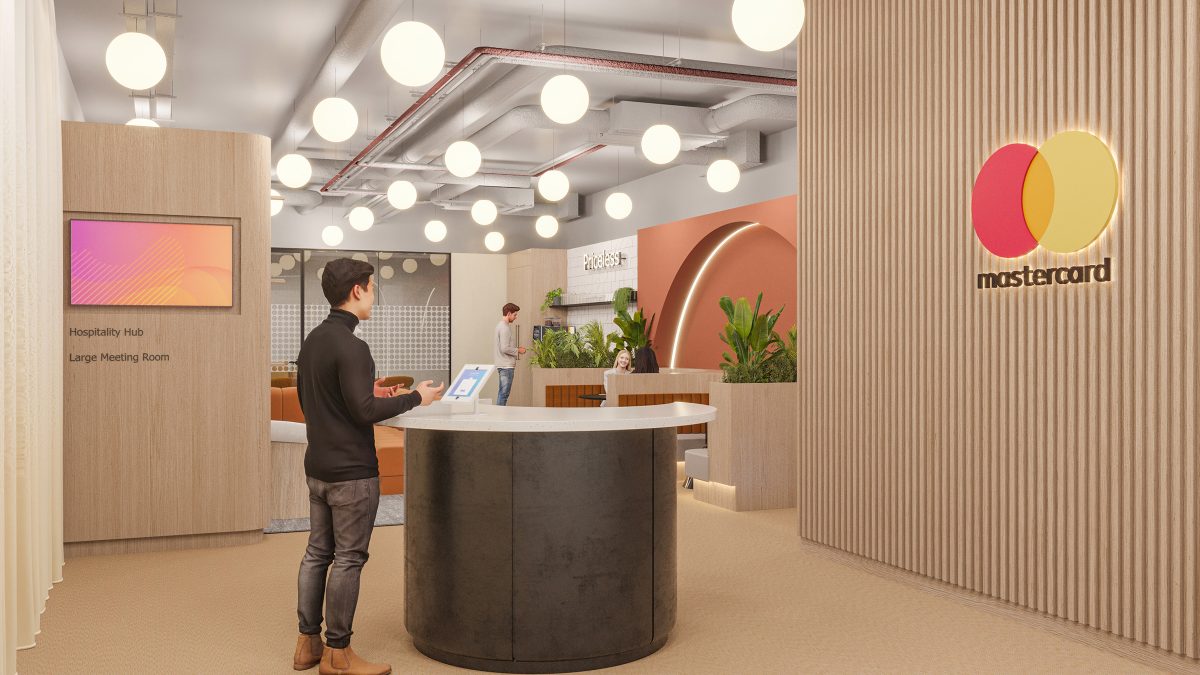 3D visualisation of arrival space at Mastercard's new London office.
3D visualisation of arrival space at Mastercard's new London office. There is no legal obligation for social landlords in England and Scotland to provide flooring in their properties. Many tenants move in to find their homes have bare concrete floors.
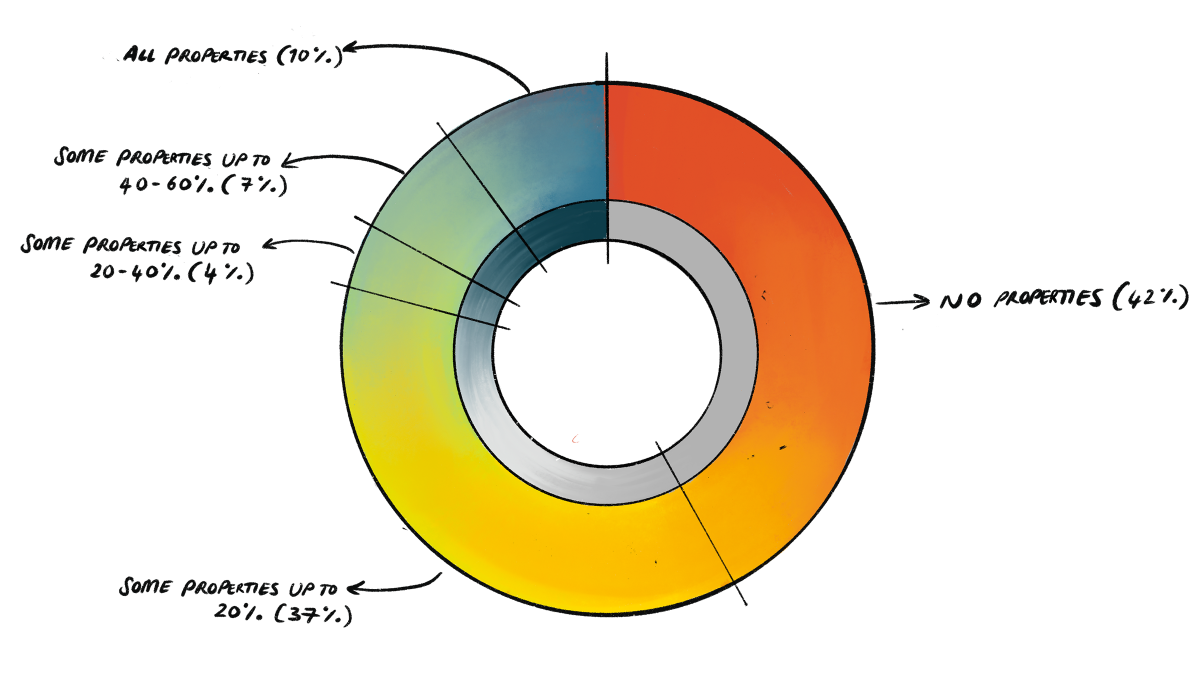 Percentage of landlords that provide flooring
Percentage of landlords that provide flooring To date, Uplyfted has installed flooring in over 200 properties, primarily benefiting residents who had been without proper flooring for extended periods. Although this is just the start, it nevertheless represents a commitment to addressing the needs of over four million households managed by housing associations.
The potential social impact is immense – improving living conditions, reducing energy costs and contributing to a more circular economy.
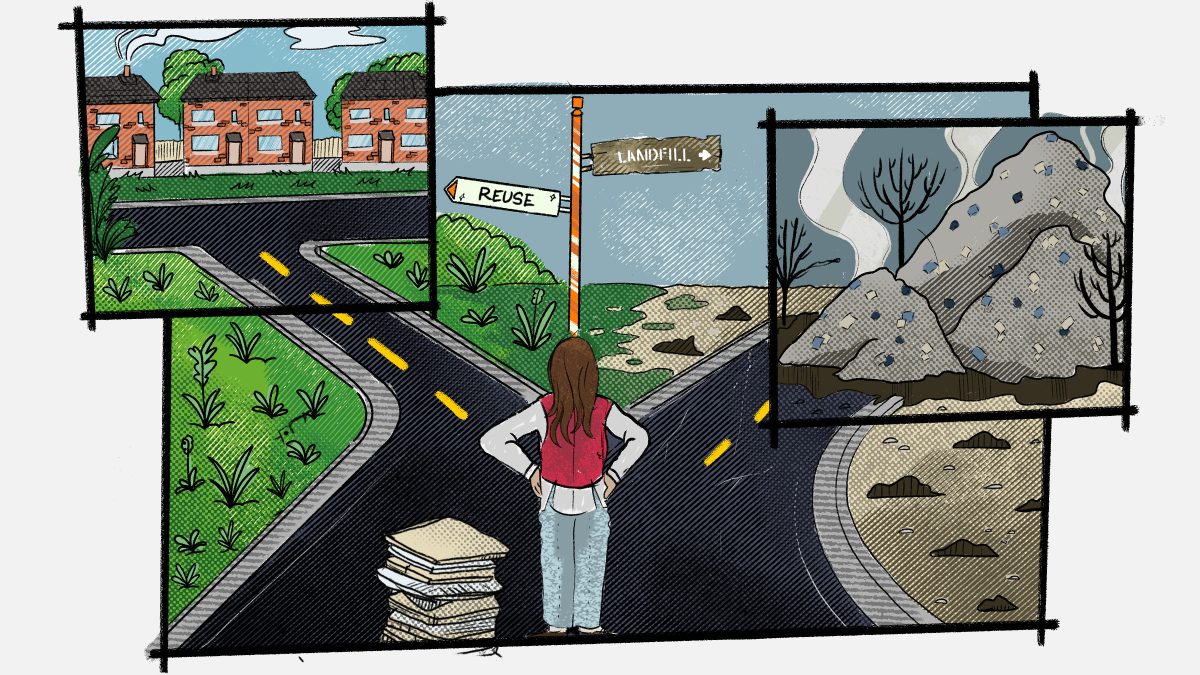
Leaders in the commercial flooring industry are already part of the take back scheme. Imagine the impact if the entire office fit-out industry started reusing materials instead of discarding them.
Reconsidering how we handle waste will allow us to be ever more ambitious with our carbon reduction targets. We can collectively drive change across the industry by making the switch, without impacting project delivery.
Let’s take action now. The small cost difference is nothing compared to the enormous impact we can achieve together. We would be happy to hear from any of our clients or peers wanting advice on getting started.
*A 2022 study by AJCP Associates estimates that the UK installs approximately 12 million sq m of carpet tiles each year. Since 75-85% of office real estate construction in the UK involves refurbishments, we can conservatively estimate that at least 8 million sq m of carpet tiles are discarded annually, and potentially more.